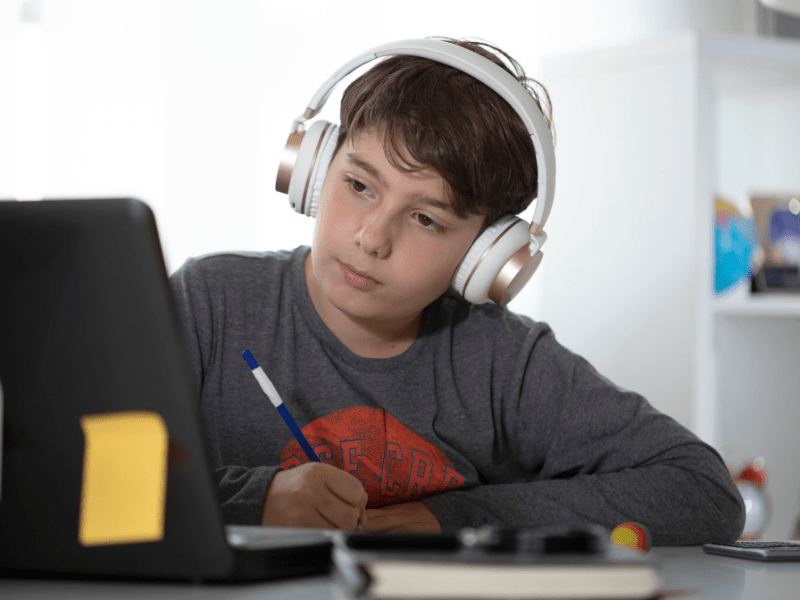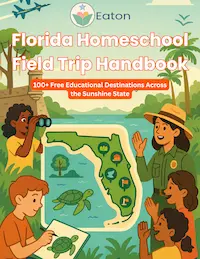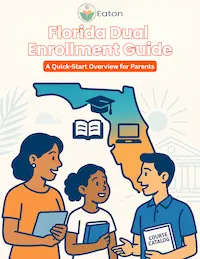Deschooling in Florida for Homeschool Parents
If you’re a homeschooling parent in the Sunshine State, you’ve probably encountered the term “deschooling Florida” at least once. Deschooling is a crucial phase for families transitioning from a traditional school setting to the more flexible world of home education. Whether you’ve just withdrawn your child from public school or you’re considering a switch in the near future, understanding what deschooling is in Florida homeschool environments can help you pave the way for a smoother, more fulfilling journey.
Below, we’ll explore the concept of deschooling—why it’s essential, how it works in a Florida context, and how you can approach it step by step. We’ll also share practical tips, trusted resources, and links to guide you through every stage of your home education experience.
What Is Deschooling in Florida Homeschool?
Deschooling is often described as the decompression phase that follows the decision to leave traditional schooling. It’s the period where both parent and child take time to unlearn rigid educational structures—fixed schedules, excessive testing, standardized curricula—and embrace the freedom of homeschooling. Instead of jumping into a rigid homeschool plan immediately, families allow space for curiosity, self-discovery, and genuine intellectual engagement.
In Florida, this process can be particularly beneficial because the state’s homeschooling laws are quite flexible. Once you’ve filed your letter of intent with your local school district, you have the freedom to design a learning environment that suits your child’s needs. Deschooling Florida style typically involves exploring local attractions (museums, science centers, historical sites), or even taking mini field trips to the beach to learn about marine ecosystems in a hands-on way.
Why Is Deschooling Necessary?
When a child has been in a traditional school for years, they’re accustomed to a specific rhythm: a morning bell, a fixed lunch break, homework at night, and frequent tests. This pattern can create a mindset where learning feels like something that only happens in a classroom with a teacher at the front of the room.
Deschooling allows children—and parents—to realize that learning is an ongoing process, not confined to a set schedule or location. It helps you:
- Reset Mindsets: Shift from seeing education as a “9-to-3 job” to recognizing it as a lifelong pursuit.
- Boost Motivation: Children become more engaged when they follow interests at their own pace.
- Reduce Stress: Deschooling offers a break from standardized testing pressures and strict timelines.
- Foster Adaptability: Parents and kids discover new ways of relating to each other and to the learning process.

Signs Your Child Needs Deschooling in Florida
- Resistance to Learning: If your child balks at even low-pressure educational activities, it might be a sign they’re burned out.
- Emotional Fatigue: Look for mood swings, anxiety, or frustration tied to anything resembling “school.”
- Curiosity Deficit: A once-curious child who’s lost their spark for exploration could benefit from a more relaxed approach.
Because Florida’s homeschool regulations don’t impose rigid subject requirements or daily hour counts, you have the flexibility to spend extra time letting your child rediscover the joy of learning—no standardized test required.
How Long Should Deschooling Last?
There’s no one-size-fits-all answer, but a common rule of thumb is one month of deschooling for every year spent in traditional school. This is not a strict timeline; some children will need less time, while others may need more. Factors like your child’s temperament, prior school experiences, and even family dynamics all play a role.
During this time, don’t be alarmed if your child wants to read the same book series repeatedly or seems glued to documentaries on marine life. This is part of the process, helping them remember that education isn’t something that only happens in a classroom.
Practical Deschooling Activities in Florida
- Visit Local Attractions
Florida is a treasure trove of educational spots. Explore the Kennedy Space Center, the Everglades, or local historical sites. Hands-on experiences can be far more engaging than worksheets! - Nature Walks and Beach Days
Deschooling in Florida can incorporate environmental science without the constraints of textbooks. Collect shells, observe local wildlife, or simply discuss the tides. - Library Tours
Many public libraries in Florida offer special programs—from reading clubs to science demonstrations. A relaxed trip to the library allows children to pick up books on topics they truly love. - Cultural Events and Museums
If you’re near major cities like Miami, Tampa, or Orlando, take advantage of art museums, cultural festivals, and science centers. - Family Game Nights
Whether it’s board games or educational apps, unstructured play can spark learning in surprising ways.
Balancing Deschooling with Florida Homeschool Requirements
While deschooling is a relaxed phase, you’ll still need to comply with state homeschool laws. In Florida, you’re expected to:
- File a Notice of Intent with your local school district.
- Maintain a Portfolio of educational activities, work samples, and reading materials.
- Conduct an Annual Evaluation—this could be a certified teacher’s review or a standardized test.
For a complete overview of what’s required, check out our in-depth guide:
Homeschool Requirements in Florida: A Practical How-To Guide
Remember, you don’t have to create a full-blown curriculum during deschooling. Your child’s reading list, field trips, and educational games can all count as legitimate learning experiences for your portfolio.
Overcoming Common Deschooling Hurdles
- Guilt Over ‘Lost Time’: Parents sometimes worry that they’re wasting valuable academic time. However, the emotional and mental reset can actually accelerate future learning.
- Fear of Falling Behind: Trust the process. Many children jump back into academics with renewed eagerness and catch up quickly.
- Family and Friends’ Opinions: Some relatives might question this relaxed period. Share reputable resources—like the Home School Legal Defense Association (HSLDA)—to assure them you’re following a recognized educational approach.
Financial Support for Florida Homeschoolers
If you’re concerned about the costs of resources or potential tutoring during or after the deschooling phase, Florida offers various scholarships for homeschoolers. You can learn more about financial assistance in our article:
How to Get a Step Up Scholarship for Florida Homeschoolers
Additionally, explore co-ops and community groups that share curriculum, organize field trips, and offer group discounts to local attractions.
Transitioning from Deschooling to Structured Learning
After your child has had ample time to relax, you’ll begin introducing more formal study. Here’s how to make that transition:
- Start Slowly: Incorporate one subject at a time. See how your child responds before adding more.
- Encourage Input: Let your child choose some topics of study. If they love astronomy, begin with a space science unit.
- Try Different Formats: From traditional textbooks to project-based learning, there’s no shortage of homeschool styles. Sample a few and see what clicks.
- Set Realistic Goals: Maybe aim for a few academic hours per day and gradually increase as your child’s motivation improves.
For more tips on structuring your new homeschool routine, see our ultimate guide:
Homeschool Florida: Your Ultimate How-To Guide

Consider Online Classes for a Smooth Start
One of the biggest challenges after deschooling is knowing where to begin academically. If you’d like expert guidance or specialized instruction in subjects like math, language arts, or science, enrolling your child in an online homeschool class can be a game-changer. It’s an easy way to:
- Access Qualified Instructors: Benefit from educators who understand the homeschool approach.
- Follow a Structured Curriculum: Keep track of lessons, assignments, and progress without heavy planning.
- Learn Flexibly: Fit lessons around your family’s schedule, even incorporating field trips and hands-on activities.
Ready to explore your options? Check out our class selection to find courses that suit your child’s interests and academic goals.
Embrace the Journey
Deschooling is not about abandoning education; it’s about redefining it. By giving your child—and yourself—time to decompress from traditional schooling mindsets, you’re laying a stronger foundation for meaningful, long-term learning. In Florida, with its array of outdoor adventures, cultural hotspots, and lenient homeschool laws, the deschooling phase can be a vibrant, eye-opening experience.
Key Takeaways:
- Deschooling helps reset attitudes about learning for both parent and child.
- Florida’s flexible homeschool regulations make it easier to explore this relaxed phase without sacrificing future academic rigor.
- Practical activities like nature walks, museum visits, and library trips can keep your child mentally engaged.
- Transition slowly into structured learning once your child shows renewed curiosity.
- Don’t forget to file required paperwork and maintain a portfolio for annual evaluations.
- Online classes and scholarships can provide structure and financial support when needed.
By embracing Deschooling Florida style, you’re empowering your family to shape education around curiosity, well-being, and real-world experiences. And once you’re ready to move into a more defined routine, Florida’s wealth of resources—from co-ops to online courses—will be there to support you every step of the way.



